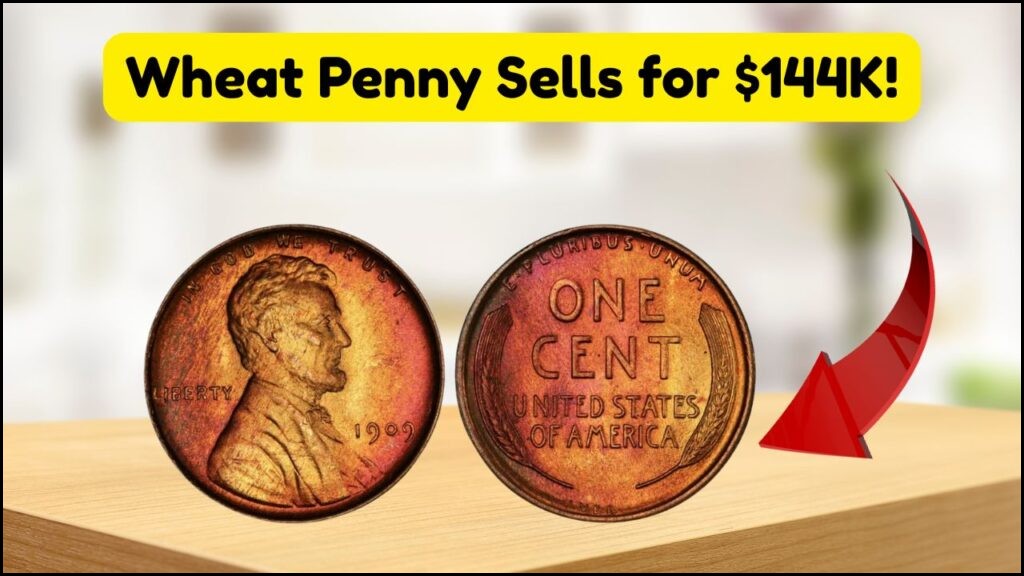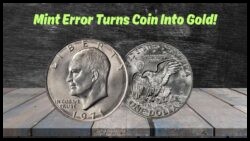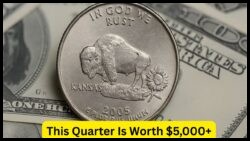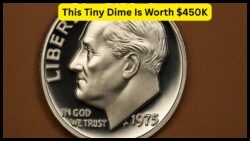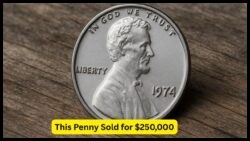Lincoln Wheat Penny – The world of coin collecting is full of surprises, but nothing beats the thrill of finding a small, rusty-looking coin in an old coat pocket and later discovering it’s worth thousands. That’s exactly what happened recently when a rare Lincoln Wheat Penny from 1943 was discovered and sold for a jaw-dropping $144,000 at a high-profile auction. The story has stunned collectors and casual coin owners alike — and it might make you want to check your spare change more closely. In this article, we’ll explore everything you need to know about the Lincoln Wheat Penny, including why this coin is so valuable, how to identify one, where to get it appraised, and how you can tell if you’re holding one of these rare treasures. With millions of wheat pennies still circulating in old jars, drawers, and boxes across the world, it’s not impossible that you could be next.
Why the Lincoln Wheat Penny Is So Valuable
The Lincoln Wheat Penny was minted between 1909 and 1958. While many of these coins are common and worth only a few cents, a few specific variations are incredibly rare and command high prices.
- The 1943 Bronze Penny is one of the most valuable variations.
- Most 1943 pennies were made of steel due to wartime copper shortages.
- A few were accidentally struck in bronze and are now worth thousands.
- Only around 20–30 of these bronze versions are known to exist today.
The combination of scarcity, historical context, and collector demand makes the 1943 bronze Lincoln Wheat Penny a highly desirable item for numismatists (coin collectors).
Key Features of the $144,000 Lincoln Penny
Only a trained eye can spot a valuable Lincoln penny. But here are a few things to look for:
- Date: 1943
- Material: Should be copper/bronze instead of steel
- Color: Reddish-brown hue, unlike the grey steel version
- Magnet Test: It should not stick to a magnet
- Weight: About 3.11 grams (heavier than the steel version)
Difference Between Common and Rare 1943 Pennies
| Feature | Common 1943 Steel Penny | Rare 1943 Bronze Penny |
|---|---|---|
| Material | Zinc-coated steel | Bronze (copper alloy) |
| Color | Grey | Reddish-brown |
| Magnetic | Yes | No |
| Weight | 2.7 grams | 3.11 grams |
| Estimated Value | $0.10 – $2 | $85,000 – $500,000+ |
How This Penny Was Found in an Old Coat Pocket
The recent $144,000 penny was discovered by an elderly man in South Carolina while cleaning out his attic. Hidden in an old coat he hadn’t worn in decades, the coin caught his eye due to its unusual reddish tint for a 1943 penny. He sent it to a coin grading service and was shocked to learn it was a rare 1943 bronze Wheat Penny.
Timeline of the Discovery
| Event | Details |
|---|---|
| Location Found | Inside an old wool coat |
| Year Found | Early 2025 |
| Location | Charleston, South Carolina |
| Coin Verification | Sent to Professional Coin Grading Service (PCGS) |
| Auction House | Heritage Auctions |
| Final Selling Price | $144,000 |
How to Check If You Have a Valuable Lincoln Penny
If you have a jar of old coins or inherited a coin collection, here’s how you can check for a rare wheat penny:
- Check the Year: Look for 1943, 1909-S VDB, or 1955 double die.
- Inspect the Color: Bronze instead of grey is a strong clue for 1943.
- Do the Magnet Test: If it sticks to a magnet, it’s steel (not valuable).
- Check the Mint Mark: Look for an “S” or “D” under the date.
- Weigh the Coin: Use a precision scale — rare bronze pennies are heavier.
- Examine Under Magnification: Look for doubling on letters (common in 1955 double die).
- Use an Appraisal Service: PCGS or NGC are trusted names in coin grading.
Where to Get Your Penny Appraised or Sold
Once you suspect you have a valuable coin, don’t try to clean or polish it — that could reduce its value. Instead, follow this process:
- Step 1: Store the coin in a soft case or plastic sleeve
- Step 2: Take clear photos under good lighting
- Step 3: Submit the coin to a grading service like PCGS or NGC
- Step 4: Get it certified and graded
- Step 5: Contact a reputable coin dealer or auction house
- Step 6: List the coin for auction or private sale
Recommended Coin Grading and Auction Services
| Service Name | Type | Website | Specialty |
|---|---|---|---|
| PCGS | Grading | www.pcgs.com | U.S. coins, authentication |
| NGC | Grading | www.ngccoin.com | Global coins, grading |
| Heritage Auctions | Auction | www.ha.com | Rare coins, collectibles |
| Stack’s Bowers | Auction | www.stacksbowers.com | High-value numismatics |
Other Valuable Lincoln Pennies to Watch For
Apart from the 1943 bronze penny, there are several other Lincoln Wheat Pennies worth thousands:
- 1909-S VDB: The first-ever Lincoln penny, rare due to limited minting
- 1955 Double Die: Famous for its doubling error on the date and lettering
- 1922 “No D” Penny: Rare due to missing mint mark from Denver
- 1944 Steel Penny: Another accidental minting, reverse of 1943 situation
Top Valuable Lincoln Pennies and Their Estimated Worth
| Year & Type | Estimated Value | Reason for Rarity |
|---|---|---|
| 1943 Bronze | $85,000 – $500,000 | Accidental mint error |
| 1909-S VDB | $700 – $5,000 | Low mintage, first year issue |
| 1955 Double Die | $1,000 – $15,000 | Die error causing visible doubling |
| 1922 No D | $500 – $2,000 | Mint mark omission error |
| 1944 Steel | $50,000 – $110,000 | Wrong material used post-war |
The story of a $144,000 penny found in an old coat pocket is a dream-come-true for coin lovers — and a powerful reminder that hidden treasures might be lying unnoticed in our homes. While the chances are slim, they’re not zero. All it takes is a sharp eye, a little knowledge, and perhaps a bit of luck. So before you toss your spare change or clean out those drawers, take a second look — you just might be holding a piece of history worth a fortune.
FAQs of Lincoln Wheat Penny
Q1. What makes the 1943 Lincoln penny worth $144,000?
A1. It was struck in bronze instead of steel, making it a rare minting error from World War II.
Q2. How do I know if my 1943 penny is bronze or steel?
A2. A bronze penny won’t stick to a magnet and weighs more than a steel one (3.11g vs. 2.7g).
Q3. Where can I sell a rare Lincoln penny?
A3. Use coin grading services like PCGS or NGC, then auction through Heritage Auctions or Stack’s Bowers.
Q4. Should I clean my old pennies before selling them?
A4. No, cleaning can damage the coin and reduce its value. Keep it in original condition.
Q5. Are Lincoln pennies after 1958 valuable too?
A5. Most aren’t, but rare errors like the 1969-S double die or high-grade proofs may have value.

